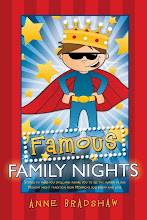Friday, May 6, 2011
Learning to take criticism
Posted by Heather Justesen at 7:57 AM 0 comments
Labels: bootcamp, conference, critiques, Heather Justesen, Improving Writing Skills, LDStorymakers
Friday, April 9, 2010
It takes a village
By Heather Justesen
They say that it takes a village to raise a child, but how many people realize it take a village to write a book too--or at least to publish a book.
My case in point: I have a book written that started with an idea spawned from a news report somebody wrote. I mulled the idea, then talked to a friend about ways to make it work, ways to expand it, extra conflicts. Then I went online to research information yet another person culled and posted. Several other people, most likely.
I worked on the story, asking for opinions from an ER nurse, my parents, and husband as I was trying to form everything and make the pieces fit.
Next I took it to my critique group and they gave me more feedback about things they liked or that needed more explanation. They told me what wasn't working and made me think about different ways to convey that information.
When I eventually find a home for the manuscript it will go through several readers, editors, line editors, and possibly more revisions.
Did I write the book? Yes. Could I have written it and gotten it to the final format without any help? Perhaps, but it wouldn't have been as good, it might not have resonated with as many people if I didn't have input and direction on how to finesse the story. My characters might not have seemed as real to the final audience.
We always say that writing is a solitary profession, and for the most part it is. I'm the one who put those words on the page. I had to suffer through countless edits and tweaks as I worked to make the wording just right, but I didn't do it all alone. I have a phalanx of loved ones and supporters who also want my book to be all it can be, and who are willing to give suggestions and feedback to help me accomplish that goal. And I've had other writers, those who are smarter and better at the craft than I am, who have helped me reach this place in my writing career, and who continue to support and cheer me on.
Because of that, I know I need to do the same. Though I've been talking about starting a local writing group since late last summer, we finally pulled a few women together last month and met to try and make something happen. We've each been in touch with additional people, and hope that in a few months we'll have enough dedicated writers to create an official chapter of the League of Utah Writers. But if that doesn't happen, I now have a core group of at least three other women living near me who want to take this writing thing seriously. They're all extremely talented, so I know we'll all have something to contribute to the group.
When a job is as solitary as writing a book, it takes a cadre of friends to help us reach our goals.
Posted by Heather Justesen at 2:40 PM 5 comments
Labels: becoming an author, critiques, Heather Justesen, improve your writing, Journey, LUW, Writing a novel, Writing Improvement
Friday, July 3, 2009
So much to do after the first draft
By Heather Justesen
It's been a busy but exciting couple of weeks for me. Cedar Fort has agreed to publish my second book, "Rebound." I finally got my third book out for a final round of critiques so I can get it polished and submitted this fall. I also have made some headway on publicity for my first book.
Does it sound a little crazy? Yeah, it can be, but I tend to like crazy.
One thing I never thought about when I started writing was how much work went in once the book was finally finished. First there are edits--and for some of my earlier books, the edits have been 20+ as I learned what worked and what didn't. Thankfully, I've learned a lot about writing since then, so I don't go through quite as many versions, but getting things right takes a bit of time and tweaking.
Second, I send my book into at least two rounds of critiques from other writers. Now that I've joined a weekly critique group with several other bloggers on this site, they are my first line against stupidity. One of the major advantages to having a supportive, honest, trustworthy critique group is that I have to have a chapter to take with me each week. That means I have to keep writing--even if it's only a few pages.
After my group, there are edits and corrections, polishing and tweaking, and then it goes out to more writers for critiques. This one is a full-manuscript critique. Since my weekly group takes five or six months--or more--to complete a book, there's a big loss of continuity. When you're reading that final scene, it's hard to remember what happened at the beginning. My final round of critiques helps me fix flow problems and continuity issues along with catching the problems I edited into the book in later versions.
Then there are final edits and I get to submit. And then the wait begins. Thankfully, the two to three months Cedar Fort takes to review manuscripts is considerably less than some of the other publishers. Once I have a contract, I like to do one last round of edits because I'm a bit anal. This is a very light edit, just looking for the little typos I missed in my previous rounds of insanity, and a few sentence tweaks. Really, at this point there shouldn't be much I want to change. If the book isn't polished and very clean already, it's not ready to submit, so this is mostly for my peace of mind, not because there is much to do.
And then we get to start planning publicity--which is a whole other topic and I'm sure we could all spend the next several weeks discussing everything we've done or plan to do, things we've heard of others doing, and how they seemed to work. Regardless, expect to spend a grundle of time getting everything organized and contacting everyone you've ever met to let them know you have a book out because when the book is accepted, the real work is only half done.
Posted by Heather Justesen at 8:51 AM 2 comments
Labels: critiques, editing, Heather Justesen, writing process
















